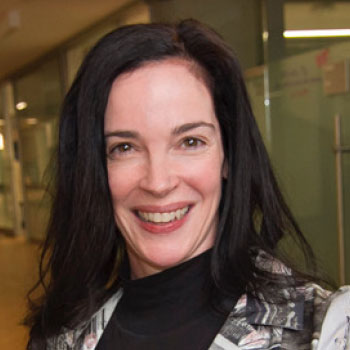 Learn More About Our School
Learn More About Our School
Discover our degrees in international affairs and public policy
Table of Contents
- Research & Policy Topics
- Degrees
- Master of International Affairs (MIA)
- Master of Public Policy (MPP)
- Master of Chinese Economic and Political Affairs (MCEPA)
- Master of Advanced Studies in International Affairs (MAS-IA)
- Ph.D. in Political Science and International Affairs
- Bachelor of Arts in International Studies and Master of International Affairs (BA/MIA)
- Bachelor of Arts in Political Science and Master of International Affairs (BA/MIA)
- Bachelor of Arts in Economics and Master of Public Policy (BA/MPP)
- Admissions Process
The UC San Diego School of Global Policy and Strategy (GPS) addresses the crucial societal challenges of the 21st century. The School’s pioneering research builds on internationally recognized expertise of the Americas and Asia, integrates analysis of public policy and markets and explores global issues of conflict and cooperation.
- We develop new analytic tools with real-world applications
- We shape cutting-edge solutions for a transforming world
- We leverage our West Coast location training the next generation of global leaders
- Our students grow through rigorous classroom study, campus and community involvement and faculty research collaboration
- Washington Monthly named UC San Diego the best public university in the nation for contributions to social mobility, research and public service. UC San Diego has topped the rankings nine times over the past decade.
“The role of GPS is to think deeply about society’s challenges and opportunities in the 21st century. We equip our students, whether they specialize in international affairs or public policy, to be adroit leaders in a world where mastery of the Pacific — a key vantage point for insights about global dynamics and emerging best practices in domestic policies — will continue to grow in importance.”
— Peter F. Cowhey, Former Dean
Research & Policy Topics
Degrees
Two-year, full-time degree program focused on Asia and the Americas. Students choose one of our five regions: China, Korea, Japan, Latin America or Southeast Asia — and achieve language proficiency by graduation. In addition, all MIA students choose one of the specializations below:
- International Development and Nonprofit Management
- International Economics
- International Environmental Governance
- International Management
- International Politics
Core Courses
- Quantitative Methods I & II
- Microeconomics for Policy and Management
- Policy Making Processes
- Globalization, the World System and the Pacific
- International Economics
- International Politics and Security
- Accounting and Finance for Policy Makers
- Capstone
For course descriptions, click here.
Featured Faculty

“My research on ‘The New New Civil Wars’ details how the internet has likely helped increase the number of civil wars to one of the highest levels in recorded history. It also reveals that these new 21st century civil wars tend to be longer, fought by a greater number of factions and enjoy substantial international support than in the past.”
— Barbara F. Walter
- Richard Feinberg
Research Topics: Cuba, Latin America, U.S. foreign policy, corporate social responsibility, democratization - Elizabeth Lyons
Research Topics: Technology and innovation strategy, international management and organizational economics - Gordon McCord
Research Topics: GIS and spacial data analysis, health policy, development economics, environmental policy - Ulrike Schaede
Research Topics: Japan, Japanese business organization, management and financial markets - Barbara F. Walter
Research Topics: International security, civil wars, extremist groups, terrorism/counter-terrorism, social media and propaganda
[ back to top ]
Two-year, full-time degree program for students who want to focus on one or more policy areas from the list below. A regional focus is optional.
- American and Comparative Business Regulation
- Environmental Policy
- Health Policy
- Inequality and Social Policy
- Peace and Security
- Program Design and Evaluation
Core Courses
- Quantitative Methods I & II
- Microeconomics for Policy and Management
- Policy Making Processes
- Market Failures and Policy Interventions
- Policy Analysis and Public Welfare
- Public Finance
- Policy Analysis and Decision Theory
- Capstone
For course descriptions, click here.
Featured Faculty

“My research has helped California move toward on-cycle local elections, which bring out a lot more voters, help more racial and ethnic minorities get into office and lead to local government policies more in line with the preferences of the broader public.”
— Zoltan Hajnal
- Zoltan Hajnal
Research Topics: American racial and ethnic politics, immigration, election administration, voting rights, political behavior - Agustina Paglayan
Research Topics:Education policy, comparative politics, labor market institutions, politics of policymaking in Latin America - Lauren Prather
Research Topics: Foreign policy, migration, democracy promotion and democratization - David Victor
Research Topics: Energy and climate change policy, international law and human rights
[ back to top ]
Two-year, full-time, research heavy degree for students who want to take a deep dive into the study of China. At least two years of prior experience with Mandarin Chinese is required for admission to the degree program. During their second year, students take a three- quarter research series guided by faculty.
- Chinese Economy
- Chinese Environment
- Chinese Foreign Relations and Security
- Chinese Politics and Public Policy
Core Courses
- Quantitative Methods I, II & III
- Microeconomics for Policy and Management
- Policy Making Processes or International Economics
- Globalization, the World System and the Pacific
- International Politics and Security or Accounting and Finance for Policy Makers
For course descriptions, click here.
Featured Faculty

“I examine issues relating to industry, trade, finance and China’s transition to a market economy. China is interesting in so many dimensions. The challenge has been that the most important topics have continuously changed. The issues are always being refreshed.”
— Barry Naughton
- Michael Davidson
Research Topics: China, electricity markets, energy and climate change policy - Ruixue Jia
Research Topics: Development economics, economic history and political economy - Barry Naughton
Research Topics: Chinese economy, foreign trade and investment and economic reform - Victor Shih
Research Topics: Chinese finance, banking policies and politics
Designing and Implementing an Interdisciplinary Capstone Project
This research project is closely guided by faculty during the second year of the degree program. The capstone fosters a mastery of research design and methods for the study of contemporary China and requires critical analysis of original and secondary Chinese sources.
[ back to top ]
Our executive degree for professionals who have at least five years of full-time work experience can be completed in one year full-time or two years part-time (for U.S. citizens and permanent residents). Students choose one of our five regions: China, Korea, Japan, Latin America or Southeast Asia — language background or coursework is not required for this degree. In addition, all MAS-IA students choose a specialization below:
- International Relations
- International Political Economy
- International Public Policy
- Environmental Policy and Sustainability
- Security of the Asia-Pacific (part-time, evening option available)
Core Courses
- Politics of International and National Policy Making
- Economies of the Pacific Rim or Microeconomics for Policy and Management
- Workshop on Policy Issues in the Pacific Rim (capstone)
For course descriptions, click here.
Featured Faculty

“I research and teach courses on Asian and Chinese security and technology. Our curriculum focuses on current debates about the security of states, the causes and contexts of conflict, environments and conditions that foster cooperation and the factors that generate both instability and peace.”
— Tai Ming Cheung
- Tai Ming Cheung
Research Topics: Chinese and East Asian defense and national, security affairs, especially related to economic, industrial, technology and innovation issues - Stephan Haggard
Research Topics: International relations and security, globalization, East Asia, North and South Korea - Joshua Graff Zivin
Research Topics: Environment, public health, international development, innovation - Kate Ricke
Research Topics: Climate change and public policy - Vice Adm. Robert Thomas (retired)
Research Topics: National security affairs, military, peace and conflict, Asia-Pacific region
Security of the Asia-Pacific track
The MAS-IA career track in Security of the Asia-Pacific (SAPAC) benefits professionals seeking career advancement in various security-related vocations. This track is among the approved civilian degrees in the U.S. for the Navy’s Politico-Military curriculum (National Security/International Relations and Diplomacy) and Foreign Area Officers specializing in China, Northeast Asia, Southeast Asia and Latin America.
[ back to top ]
Joint program with the UC San Diego Department of Political Science. The program has a required first-year curriculum in which students focus on coursework in politics and research methods. During the second year, students begin to focus their coursework on their chosen area of research, completing the 18 required courses for advancement to candidacy. There is a research and teaching component as well.
Featured Faculty

“I encourage students to understand cause and effect in the courses I teach — why are people acting the way they do, what are their interests, what types of tools can you leverage to change those interests to solve a particular problem. Whether it’s human rights, climate change or global security, that’s the way to change the world!”
— Emilie Hafner-Burton
- Emilie Hafner-Burton
Research Topics: International law and regulation, human rights, election violence, trade and investment, behavioral economics, political psychology and social networks policies - Craig McIntosh
Research Topics: Development economics, agricultural and resource economics, foreign aid, microeconomics and anti-poverty
[ back to top ]
Bachelor of Arts in International Studies and Master of International Affairs
This is a consecutive program with the undergraduate International Studies Program. It is open only to business, economics and political science International Studies majors at UC San Diego.
Bachelor of Arts in Political Science and Master of International Affairs
This is a consecutive program with the undergraduate Department of Political Science.
Bachelor of Arts in Economics and Master of Public Policy
This is a consecutive program with the UC San Diego Department of Economics. The program is open only to economic majors at UC San Diego.
Admissions Process
Step 1
Visit gps.ucsd.edu and our social media pages to learn about our programs, student life, admissions requirements for each degree and what you can do with a degree from GPS.
Step 2
Make an appointment with a member of our admissions team.
Step 3
Prepare your application materials, including letters of recommendation, transcripts, resume, statement of purpose and language scores (if applicable).
Step 4
Submit a complete application with all materials by your application deadline. For details on requirements, deadlines and admissions policies, visit: gps.ucsd.edu/apply






